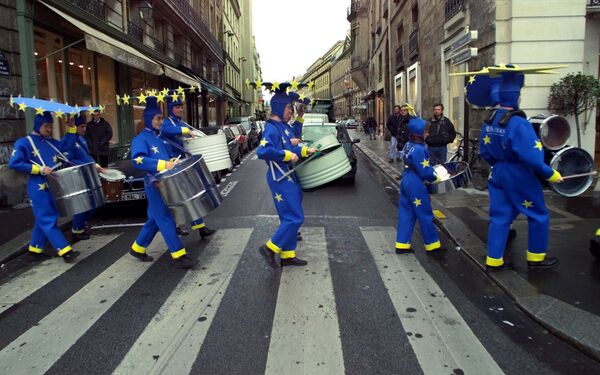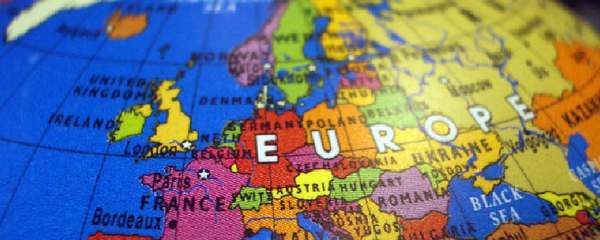While the euro was officially launched January 1, 1999 as a virtual currency, to be used in accounting and financial transactions, it only entered the physical realm three years later. Then, the EU was comprised of 15 member states, of which 12 adopted the currency.

Today, it's the national currency of 340 million people in 19 European countries. Of the countries that have acceded to the EU since the single currency's launch, only seven have joined the euro — although EU accession laws require them all to, once they are ready.
If the sentiments recorded in a December Eurobarometer report persist, however, that time may never come. In the polling, a majority of the populations of Czech Republic, Bulgaria and Poland were found to be the most ardently opposed to the single currency — opposition in each country standing at 72%, 50% and 57% respectively. While support among Croatians (43%), Hungarians (41%) and Romanians (35%) was higher, their enthusiasm was considerably slighter than the EU average of 58%.
Elsewhere in the study, while the report notes that while over two-thirds of Eurozone member state citizens believed the euro had been good for the EU, this figure has declined four percentage points year-on-year.
Today, we mark 15 years of the #Euro banknotes and coins. Take a look at the success achieved and the challenges ahead. pic.twitter.com/5yaFMlOOkS
— European Commission (@EU_Commission) January 1, 2017
Joachim Corbach, head of currencies and commodities at investment management firm GAM, told Sputnik that the euro's prospects have rarely looked so rocky.
"A 15-year wedding anniversary is referred to as the crystal anniversary. This may be an apt label for the euro's 15th anniversary, since the currency seems extremely fragile. Very few market participants expect the euro to be celebrating its silver anniversary in ten years' time. The eurozone is far from being the ideal landscape to host a single currency — individual national economies are too heterogeneous, their economic cycles too asymmetrical and factor mobility too low. This means that it is questionable whether the economic benefits will outweigh the drawbacks at any time," Corbach told Sputnik.
Corbach is also concerned about political risks moving forward. With 70% of Europe heading to the polls in 2017, and Euroskeptic or outright Europhobic candidates leading in the polls in many countries, the entire euro project could well be under threat. Still, this gloomy prognosis is not without caveats.
"Risks around elections must not be underestimated, especially if political forces openly opposed to continued Eurozone membership gain power in the coming year," Corbach said.
"Nevertheless, the example of Greece demonstrates the election of a Euroskeptic party does not automatically lead to a Eurozone exit. This reflects an understanding that any defection by a member state would make its economic situation significantly worse not better, at least in the short term. Consequently, we can assume that the euro will have some more birthdays to celebrate," he added.
In a September speech in Italy, Benoit Coeure, a member of the European Central Bank Executive Board, acknowledged many Europeans lacked confidence in the EU currency.




